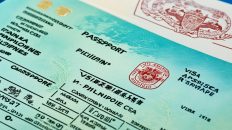Philippines ACR I-Card
The ACR I-Card, while a simple piece of identification, holds significant value and utility for foreigners in the Philippines. From legal compliance to facilitating everyday transactions, it’s an indispensable asset for anyone planning an extended stay. Ensuring you obtain one early on can set the stage for a smoother experience in this beautiful archipelago.
The Philippines has become an increasingly popular destination for expatriates, business professionals, retirees, and long-term tourists. While the tropical climate, serene beaches, and welcoming culture have made it a favorite among many, anyone planning to stay in the country for an extended period must be aware of specific immigration requirements. One such vital requirement is the Alien Certificate of Registration Identity Card, commonly known as the ACR I-Card.

Advantages of Getting the ACR I-Card
- Legal Requirement & Long-Term Stay The ACR I-Card is a mandatory requirement for foreigners staying in the Philippines for more than 59 days. It not only ensures you’re legally compliant with the country’s immigration laws but also provides an assurance to the authorities about your bona fide status in the nation.For Foreign Nationals: Without the ACR I-Card, your extended stay might be deemed unauthorized, leading to potential legal consequences and difficulties in subsequent visits to the country.For Philippine Authorities: The card serves as a tracking mechanism, ensuring that foreign nationals within the country can be easily identified, which aids in national security and internal order.
- Facilitation of Transactions The ACR I-Card is often required or beneficial for various transactions in the Philippines. From opening a local bank account, signing a lease, or even obtaining local services, the card simplifies many day-to-day processes that might otherwise require a long list of documentation.For Foreign Nationals: With an ACR I-Card, mundane tasks like getting a mobile phone connection, accessing financial services, or even enrolling in local institutions becomes smoother.For Service Providers: From their perspective, the card offers a form of assurance that the individual they are dealing with has met certain immigration requirements, leading to a level of trust in transactions.
How to Get the ACR I-Card
Obtaining an ACR I-Card is a straightforward process but requires some meticulousness:
- Initial Documentation: Ensure you have a valid passport, your visa, and a few passport-sized photographs.
- Application Form: Acquire and fill out the ACR I-Card application form, which is available at the Bureau of Immigration or can be downloaded from their official website.
- Submission and Payment: Submit the form and necessary documents at the Bureau of Immigration, pay the required fees, and get a receipt.
- Biometrics: You will need to go through a biometric capture process which includes fingerprinting and photographing.
- Collection: After processing, which can take several weeks, you will be notified when your card is ready for collection.
Remember, details may vary based on your visa type and other specific circumstances, so always check with the Bureau of Immigration or a local advisor for the most current guidelines.
Example 1: Banking & Financial Transactions
Opening Bank Accounts: One of the significant hurdles foreigners face in many countries is navigating the banking system. In the Philippines, while it’s possible to open an account without an ACR I-Card, having one makes the process far more straightforward. The card provides banks with a clear indication of your legal status and residence.
Loans & Credit: If a foreigner wishes to apply for local credit or loans, many institutions will look for a long-term identification, like the ACR I-Card, to assess reliability and intention to stay. It not only serves as an ID but also as an affirmation of your commitment to staying in the Philippines, which can increase your credibility with financial institutions.
Example 2: Real Estate & Housing
Renting Property: While many landlords are open to renting to foreigners, they also seek assurance regarding the legal status of their potential tenants. Having an ACR I-Card can facilitate this process, providing both parties with peace of mind.
Buying Property: While there are restrictions on foreigners owning land in the Philippines, they can purchase units in condominiums. In such significant transactions, having an ACR I-Card can be invaluable. It simplifies the documentation required and assures sellers of your genuine intent and legal standing in the country.


















Add comment